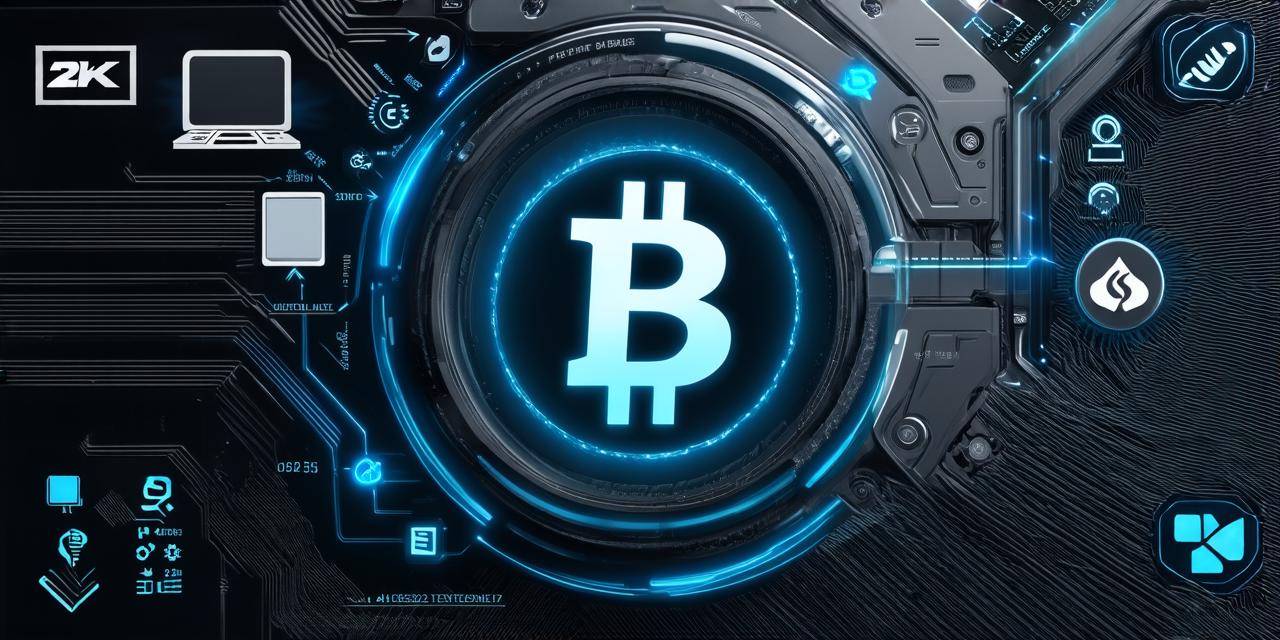What does the blockchain application do
Blockchain technology has been revolutionizing industries across the board, and its potential is virtually limitless.
In recent years, we have seen blockchain being used in various sectors, including finance, healthcare, supply chain management, and even voting systems. However, what exactly is a blockchain application? In this article, we will explore the concept of blockchain applications, their benefits, and some real-life examples of how they are transforming different industries.

What is a Blockchain Application?
A blockchain application is an application that utilizes the principles of blockchain technology to enable secure, decentralized transactions and data storage. In simple terms, it is a software program that runs on a network of computers, rather than relying on a central authority or intermediary to manage and validate transactions. The core component of any blockchain application is its underlying blockchain network, which consists of a chain of blocks that contain information about the state of the system at a particular point in time.
Benefits of Blockchain Applications
The key benefits of blockchain applications can be summarized as follows:
- Decentralization: Unlike traditional systems, which rely on central authorities or intermediaries to manage transactions and maintain data, blockchain applications are decentralized and operate on a peer-to-peer network of computers. This means that there is no single point of failure, making the system more resilient to attacks and cyber threats.
- Security: Blockchain technology uses cryptographic techniques to secure transactions and protect data from unauthorized access or tampering. Once data is recorded on the blockchain, it cannot be changed or deleted, providing a high level of security for sensitive information.
- Transparency: All transactions on the blockchain are visible to all network participants, which provides transparency and accountability. This can be particularly useful in industries where trust between parties is critical, such as finance and supply chain management.
- Traceability: The immutable nature of the blockchain makes it easy to track and trace transactions and data, providing a complete audit trail that can be used for compliance and regulatory purposes.
- Faster and cheaper transactions: Blockchain applications enable faster and more efficient transactions by eliminating intermediaries and streamlining processes. This can result in significant cost savings and increased efficiency.
Real-life Examples of Blockchain Applications
Now that we have an understanding of what blockchain applications are and their benefits, let’s look at some real-life examples of how they are being used to transform different industries:
Finance
Blockchain technology has the potential to revolutionize the finance industry by enabling faster and more secure transactions, reducing costs, and increasing transparency. One example is Ripple, a blockchain-based payment protocol that enables cross-border payments in various currencies with lower fees and faster settlement times than traditional methods.
Healthcare
Blockchain technology can be used to improve the security and privacy of patient data, while also enhancing interoperability between different healthcare providers. For example, Gem, a blockchain platform for healthcare, enables secure sharing of patient data across multiple parties while maintaining data privacy and security.
Supply Chain Management
Blockchain technology can be used to improve supply chain transparency, traceability, and efficiency by enabling real-time tracking of goods and reducing the risk of fraud and counterfeit products. For example, Walmart has implemented a blockchain-based system for tracking the origin and movement of food products, which has helped to reduce food waste and improve food safety.
Voting Systems
Blockchain technology can be used to enhance the security and transparency of voting systems, while also reducing the risk of fraud and tampering. For example, Voatz is a blockchain-based voting system that enables secure and verifiable voting through a mobile app.
Conclusion
In conclusion, blockchain applications are software programs that utilize the principles of blockchain technology to enable secure, decentralized transactions and data storage. The benefits of blockchain applications include decentralization, security, transparency, traceability, and faster and cheaper transactions. Real-life examples of blockchain applications in finance, healthcare, supply chain management, and voting systems demonstrate the transformative potential of this technology.



